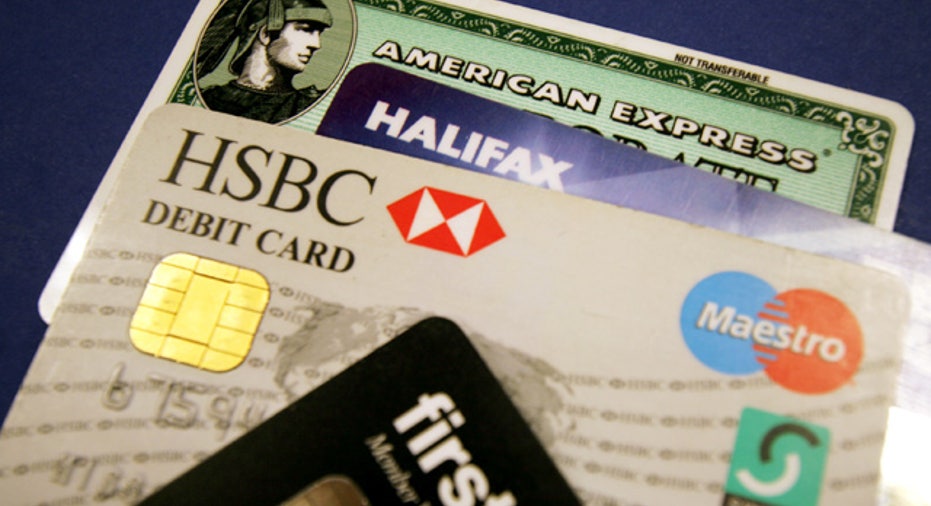No More Credit Cards for Students: Fact or Fiction?

I'm a student. Can I get a credit card? Do I need a co-signer? Do I need a job?
I'm a parent. Will card companies target my child at college? As a co-signer, how liable am I? What exactly are the rules now? How do they affect me?
These questions continue to puzzle students and parents in the wake of the Credit CARD Act taking effect in February 2010.
To help dispel any lingering confusion, we bust four myths concerning student credit cards so you can deftly navigate the changed credit card landscape.
Myth 1: Students can't get credit cards
It's true that it's more difficult for students to obtain credit cards today, but it's still doable.
"There are resources out there," says Jeremy Vohwinkle, Chartered Retirement Planning Counselor and author of the blog GenXFinance.com. "You just have to go through a few more hoops and do a few more things to qualify."
The Credit CARD Act rules only apply to those under age 21. If you're under 21, you must meet one of the following conditions to get a credit card:
- Someone who is 21 or older co-signs and has the means to repay the debt (like a parent)
- You have sufficient independent income--enough to cover the card's minimum monthly payment
This means a student credit card might be out of reach for an unemployed student whose parents aren't creditworthy, or won't co-sign. Bear in mind also that credit card company policies vary with regard to co-signers.
The federal government adopted these rules to help keep the younger generation from amassing crippling debt. While not the norm, some students graduate with thousands of dollars in credit card debt.
"Until recently, credit card companies aggressively marketed (to) young people. It led to a lot of lending abuses and debt for young people," Vohwinkle says.
Myth 2: Student credit cards are a bad idea
"Student cards get a bad rap because people think all students are running up big bills, but they're actually a useful tool," Vohwinkle says.
If you're a student, using a credit card wisely helps you establish a good credit history early, which will help you later when it's time for you to apply for credit to make a major purchase such as a TV or a car, or even to rent an apartment.
However, the new rules may discourage students from getting a credit card even if they have the financial know-how to use it responsibly.
"These limits are hurting some people," Vohwinkle says. "They'll get stuck behind the eight ball."
Myth 3: There's no way around the new rules
Some students have found ways to skirt the new rules and obtain credit cards. Most of these workarounds are anything but smart moves, though:
*Falsifying income. Student credit card applications typically ask for your yearly income and bank account information. Students sometimes inflate assets or earnings, or include monies received from their parents or through financial aid.
"It's supposed to be verifiable, independently earned income, but the problem is applications don't require you to submit tax returns and paycheck stubs," Vohwinkle says.
*Co-opting a co-signer. If your parents won't co-sign, you may turn to someone else who is over 21 to co-sign for you, such as a roommate, friend or sibling. This is dangerous for the co-signer, who becomes liable for any debt that you, the student cardholder, incur.
*Applying for a business credit card. Anyone can apply as age restrictions don't exist and proof of the business isn't required.
*Applying for multiple cards. By chance, you might just make it through the screening process. It's happened. Just don't go crazy getting credit cards.
"They might get one and get lucky or, rather, unlucky, with some free credit," Vohwinkle says. The downside, of course, is that if you obtain a credit card without having the means to pay it off, either you or your accomplice could find yourselves in serious financial trouble down the road.
Myth 4: Credit card companies can't target students anymore
The Credit CARD Act prohibits credit card issuers from marketing on college campuses, at college-sponsored events, and within a certain distance from these places, but only when giving students promotional items, like T-shirts, for filling out a credit card application.
However, card issuers, too, can get around the rules by doing one or both of the following:
*Tempting students with swag in locations just beyond the restricted areas.
*Loosely reviewing student applications. For example, the law doesn't mandate they verify student income.
Students and credit cards will still find each other - it's just not as easy as it used to be, which overall is a good thing for both students and credit card companies. If you're a student contemplating your first credit card, be sure you understand how they work and what you're agreeing to when you sign. And if you're a parent, consider passing your credit card knowledge on to your children so they are better prepared to be responsible with their newfound credit.
The original article can be found at CardRatings.com:No more credit cards for students: fact or fiction?



















